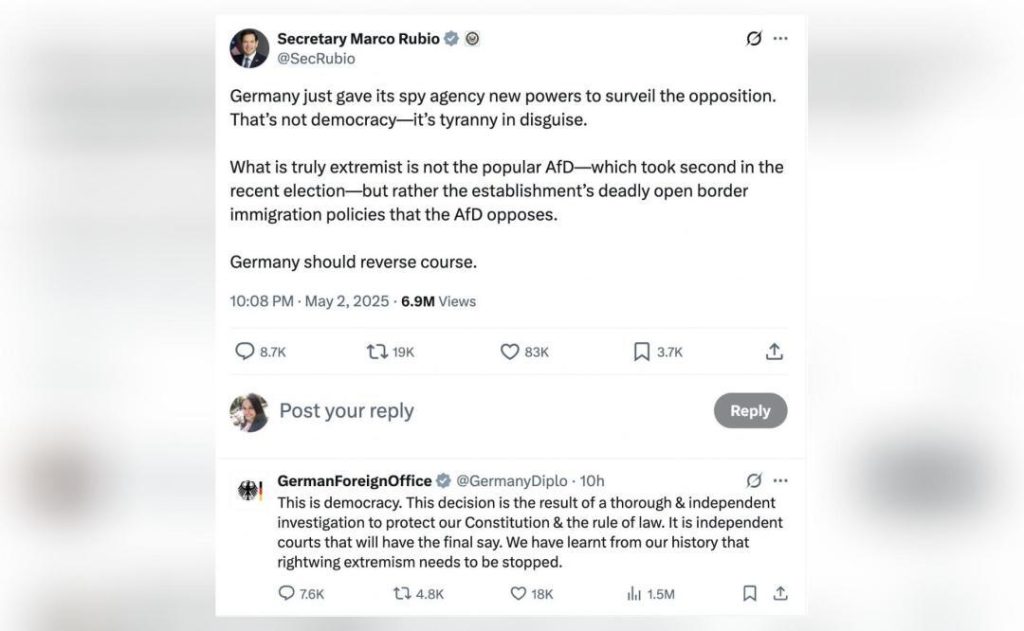
US Secretary of State Marco Rubio & German Govt Clash Over AfD Party’s ‘Extremist’ Tag
A heated diplomatic row has erupted between the US and Germany over the designation of the far-right Alternative for Germany (AfD) party as “extremist” by Germany’s domestic intelligence agency. US Secretary of State Marco Rubio has accused Germany of enabling “tyranny in disguise” by labeling the AfD party as extremist, sparking a strong reaction from the German Foreign Ministry.
The controversy began when Germany’s Federal Office for the Protection of the Constitution (BfV) designated the AfD party as “extremist” in a report, citing its perceived anti-constitutional and xenophobic views. The BfV is responsible for monitoring and investigating potential threats to Germany’s democracy and national security.
However, US Secretary of State Marco Rubio took strong exception to the German government’s decision, calling it a “grave mistake.” In a statement, Rubio accused Germany of embracing “tyranny in disguise” and warned that such actions would have far-reaching consequences for the future of democracy in Europe.
Rubio’s remarks were met with a swift response from the German Foreign Ministry, which defended the BfV’s decision as a necessary step to protect Germany’s Constitution. In a statement, the German government said, “The decision regarding AfD is a result of thorough investigation to protect our Constitution. We cannot comment on individual political opinions, but we will continue to monitor and investigate any anti-constitutional activity.”
The AfD party, which has been accused of promoting anti-immigrant and anti-Muslim rhetoric, has been a thorn in the side of the German government for several years. The party has been known to attract far-right and extremist elements, and its leaders have been criticized for promoting hate speech and xenophobic views.
The controversy has raised questions about the role of far-right parties in European politics and the extent to which governments should be willing to tolerate their views. While some argue that AfD represents a legitimate expression of popular sentiment, others see it as a threat to democratic values and the rule of law.
The US-German dispute over the AfD party’s designation as “extremist” has significant implications for the future of transatlantic relations. The US and Germany have traditionally enjoyed strong diplomatic ties, but the controversy has exposed deep divisions over issues of democracy, human rights, and national security.
The US Secretary of State’s remarks have also sparked concerns about the potential for political polarization and the erosion of democratic institutions. Rubio’s accusation that Germany is enabling “tyranny in disguise” is a stark reminder of the dangers of political extremism and the importance of protecting democratic values.
In conclusion, the US-German dispute over the AfD party’s designation as “extremist” highlights the complex and often contentious nature of international politics. As the world grapples with the challenges of globalization, terrorism, and political polarization, it is more important than ever that governments and international organizations work together to promote democratic values and protect human rights.



